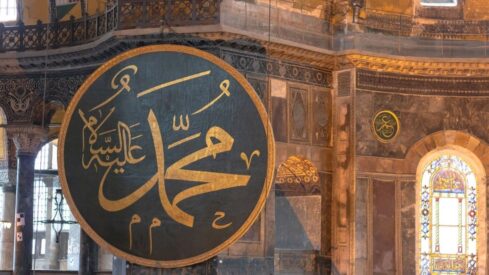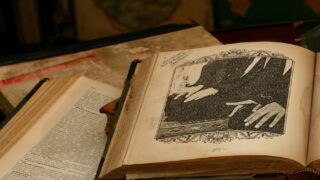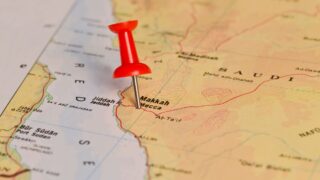Throughout history, the enemies of Islam have sought in many ways to break the willpower of the Muslim Ummah. Hunger is an efficient weapon, and the scene of children starving to death is enough to break the strongest willpower. However, such attempts failed to subjugate the Muslim Ummah. In the early years of the Islamic call, the Muslims faced an economic and social boycott that lasted three years. The following article relates the details of this event.
The following four events of special significance occurred within less than four weeks:
1- The conversion of Hamzah, the Prophet’s uncle and one of the Quraish tribe’s most prominent figures
2- The conversion of `Umar, another influential member of Quraish tribe
3- The Prophet’s refusal to negotiate any sort of compromise
4- The pact drawn up between the clans of two tribes in Makkah to protect the Prophet and shield him against any assassination attempt
The Makkan polytheists had no idea what they could do with the situation which was slowly destroying their entire way of life. They had already been aware that if they were to kill the Prophet, then they would also be killed. Taking this dreadful prospect into consideration, they grudgingly resorted to a different course that would not imply murder.
A Pact of Injustice and Aggression
The polytheists of Makkah held a meeting in a place outside of Makkah, and formed a confederation in opposition to two tribes of Makkah that supported Muhammad. They decided not to have any business dealings or intermarriage with them. They vowed that all social relations, visits, and even verbal contact with Muhammad and his supporters would be discontinued until Muhammad was given up to them to be killed. The articles of their proclamation, which called for merciless measures to be taken against the two Makkan tribes, were recorded by a polytheist and then hung inside the Ka`bah.
Abu Talib, the Prophet’s uncle, wisely decided to withdraw to a valley on the eastern outskirts of Makkah. Two Makkan tribes followed him and hid in the narrow pass for a period of three years. The food supply was almost gone and the people faced great hardships. The polytheists would purchase all of the food supplies that entered Makkah to prevent the people in exile from obtaining them. The two tribes were so famished that they had to resort to eating leaves and animals skins. Cries of little children suffering from hunger could be heard in the valley.
The only food supplies that would reach them were smuggled on a few occasions by compassionate Makkans. During the prohibited months — when hostilities traditionally ceased betweens enemy tribes — they would leave their camp to buy food supplies from caravans entering Makkah. Even then, the food was overpriced and they could hardly afford to purchase anything.
One Makkan was once smuggling some wheat to his aunt when Abu Jahl, the Prophet’s wicked uncle, intercepted him. Only when another Makkan intervened was the man able to reach his aunt. Abu Talib, the Prophet’s kind uncle, was very concerned about the personal safety of his nephew. In an attempt to trick a potential assassin, Abu Talib would ask the Prophet to lie in his place when everyone was asleep, but when the others fell asleep, he would order him to change his place and take another.
Despite all odds, the Prophet kept his faith, and his determination and his courage never weakened. He continued to go to the Ka`bah and to pray publicly. He used every opportunity to preach to outsiders who visited Makkah for business or on pilgrimage during the sacred months and special festive seasons.
This situation ultimately created dissension among various Makkan factions who were tied with the exiled people by blood. After three years of blockade, the pact was broken. One Makkan, who would secretly smuggle some food to the Muslims at night, went to see a polytheist Makkan and reproached him for the maltreatment of his uncles in exile. The polytheist Makkan argued that he had no influence, but agreed to cooperate with him to form a coalition that would allow the exiled tribes to return to Makkan.
Sympathetic with the two tribes in exile, many of whom they were related to, a group of five Makkan tribesmen set out to cancel the pact, which they declared to be void. They decided to meet in their assembly place and to begin their mission from the Ka`bah. One tribesman circumambulated seven times along with his colleagues and then approached the polytheist Makkans and rebuked them for indulging in luxury while their relatives were perishing in the valley due to starvation and economic boycott.
During the confrontation, Abu Talib was sitting in a corner of the Ka`bah’s enclosure. He came to communicate to them that a revelation had been sent to his nephew Muhammad (peace and blessings be upon him) that white ants had eaten away the written pact miraculously leaving only the parts that had the name of Allah written on them.
Abu Talib made an offer: He would be ready to give Muhammad up to them if his words proved untrue, but if they proved to be true, they would have to recant and repeal their boycott. The Makkans agreed to this proposition. When they went to see the parchment, they discovered that the Prophet’s revelation was true and that the entire parchment had been eaten away by the ants except for the name of Allah. As a result, the pact was cancelled and Muhammad and the members of the two tribes were permitted to return home to Makkah.
By Sheikh Safiur Rahman Al-Mubarakfuri
Sheikh Safiur Rahman Al-Mubarakfuri was born and received his education in India. He taught jurisprudence and hadith in the Slafi University and worked as the editor in chief of its magazine Muhaddith. He worked in the Sunnah Center affiliated to the Islamic University, Madinah, Saudi Arabia. He authored a number of books including Ar-Rahiq Al-Makhtum (The Sealed Nectar) which was honored by the World Muslim League with the first prize in a Prophet’s biography contest.


















